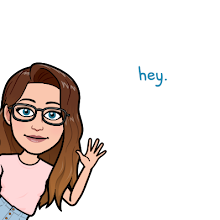Divergent Thinking
by multiple authors, edited by Leah Wilson
Divergent Series Companion
Category: Young Adult
Publisher: Smart Pop Books
Release Date: March 4, 2014
Edition: E-Book
Page Count: 256
Source: from publisher via NetGalley
Goodreads Synopsis: Veronica Roth’s Divergent trilogy (Divergent, Insurgent, Allegiant) has captured the hearts and thoughts of millions of readers. In Divergent Thinking, YA authors explore even more of Tris and Tobias’ world, including:
� What Divergent’s factions have in common with one of psychology’s most prominent personality models
� The biology of fear: where it comes from and how Tris and the other Dauntless are able to overcome it
� Full-page maps locating all five faction headquarters and other series landmarks in today’s Chicago, based on clues from the books
� Plus a whole lot more, from why we love identity shorthand like factions to Tris’ trouble with honesty to the importance of choice, family, and being brave
With a dozen smart, surprising, mind-expanding essays on all three books in the trilogy, Divergent Thinking provides a companion fit for even the most Erudite Divergent fan.
Review: When I first saw this book on NetGalley, it only took me a matter of seconds to put in the request for it, and I was thrilled when that request was accepted. I love the Divergent series (it probably borders on obsession these days), so I was eager to see what this book had to hold. NOTE: This book should not be read until AFTER you complete the series. It talks about things that happen throughout the whole series, so it is not something that you would want to read first, unless you want the ending of the series spoiled for you. As this book is a series of essays from twelve different Young Adult authors, I will give you a little glimpse of what each writes about.
Before I do so, here is a quote from the introduction of the book, which I believes sets up the purpose of this novel quite well. This quote comes during the discussion of Divergent being compared to The Hunger Games.
"But where the Hunger Games engages with control on a societal level, the Divergent trilogy is more focused on the personal. Where the Hunger Games tells a story of rebellion and social change as much as it does about its protagonist's efforts to subvert others' use of her, Divergent is interested in a different kind of freedom--from exploitation, yes, but also from the labels society puts on us and the subtle pressures of others' expectations."
Rosemary Clement-Moore: Moore discusses the different personality types and how they play a role in the factions throughout the novels, but also in the idea that as humans we seem to have the desire to sort ourselves, even when we are not in a Dystopian environment. She then goes on to explain how the factions in the novel align with the Chinese elements. She concludes her novel by discussing how all of the super heroes we cheer for HAVE to be divergent themselves.
Jennifer Lynn Barnes: Barnes continues on with Moore's conversation and completes the discussion of personality traits and how they seem to play a role in how Roth determined the factions and what they would stand for. Barnes talks about the Big Five (which I had not actually heard of until I read it, very interesting). She breaks down the factions based on the personality types, and then goes on to explain what being divergent REALLY means.
V. Arrow: This was one of my favorite essays in the novel as it had maps and visuals, and a lot of fun things to think of. Being from Chicago, Arrow tried to figure out where all of the book took place in the city of Chicago; what seemed to be left from the Chicago we all know, and what had obviously changed. It was interesting to listen and try to discover where the different headquarters may have been, and how close they all seemed to live as they traveled back and forth together.
Maria V. Snyder and Jenna Snyder: This mother and daughter duo go on to talk about how we are able to make choices over again, but that it did not always seem that way in the Divergent series. In real life, we are able to choose different things if we are not happy with the way our lives are going. In Divergent, the choosing ceremony seems to be the only time they get to do this, and it is a BIG deal. It was interesting reading their two different points of view on the same topic.
Elizabeth Norris: Norris speaks in her essay about the true meaning of bravery, and what it takes to be classified as someone who is brave. Fear is something that is spoken about quite a bit throughout the series, which makes sense as Tris joins Dauntless, where she is supposed to be brave and fearless. Norris discusses how our fears can be what pushes us forward in order to make the most difficult decisions.
Blythe Woolston: Woolston goes on to continue the idea of how fear affects us, but she focuses her attention and essay more specifically on Tris and how some of her decisions are based on the fears that she has. She talks about how fear is something that we are taught and develop, and that it can be very contagious. It is all in our minds, after all.
Mary Borsellino: Borsellino focuses on the different family dynamics that we see in the series, and this was a very interesting essay to read as well. Of course, it goes back and forth between Tris' parents and Tobias' parents, and she brings up some wonderful and insightful ideas about it all. While there is so much happening in the novels, Borsellino points out that family remains a pretty important aspect through everything that happens.
Debra Driza: Driza discusses the secrets and lies throughout the series....I am sure that you can only imagine how intriguing her essay is. I won't give anything away on this one.
Dan Krokos: Krokos focuses most of his essay on Allegiant, so I will not be sharing much in case my readers have not gotten through the series (I really do not want to spoil anything). What he says is very interesting though, and is a very good read when through with the series. He goes on to talk about the differences (and horrible qualities) of the two groups that we meet in the final book.
Julia Karr: Karr goes back to focusing on the factions once again, but it is not about the psychology and personality traits like we read earlier in the book. Instead, she focuses on "the Good, the Bad, and the Ugly" about being divided into factions. After all, while it might be nice to be in a group, that does not mean that everything is perfect. We all know that very well.
Janine K. Spendlove: This section or essay of the book is titled "The Downfall of Dauntless." If you started out as a Dauntless fan in the series (even if it is just because Tris chose the faction, like me) then you will enjoy reading this section as it tells us all about Dauntless, and how things turned bad for them and why.
Elizabeth Wein: Wein talks about the Factionless. She titles her section "Emergent" which is what she thinks the Factionless would have named their Faction, if they were to be one. Of course they're not because that would defeat their purpose. Wein discusses how we come to see the Factionless differently as we read through the novels, from pitying them to realizing that they knew what they were doing, and were managing to survive.
Rating: 4.0/5.0
I really, really enjoyed reading this book myself, which is why I gave it a 4 rating. I find it very interesting to read about the psychology and biology that goes into the book; how while everything is fiction in the books, they are based off things that are very real within the world. The only concern I have is that it is labeled Young Adult, and I am not sure how many young people would actually enjoy reading a book with this much information. Still, I do believe that some of them will pick it up and enjoy it just as much as I did.



















No comments:
Post a Comment